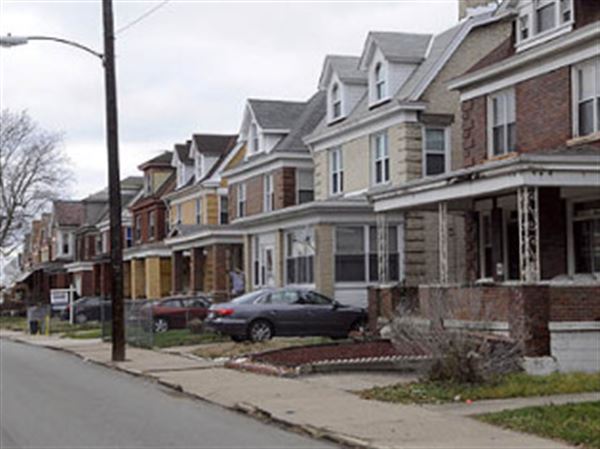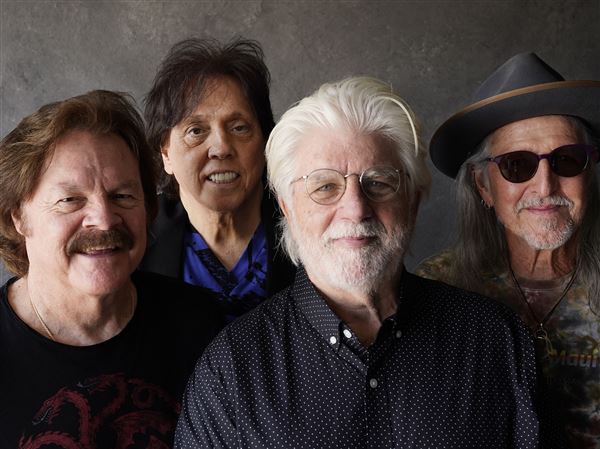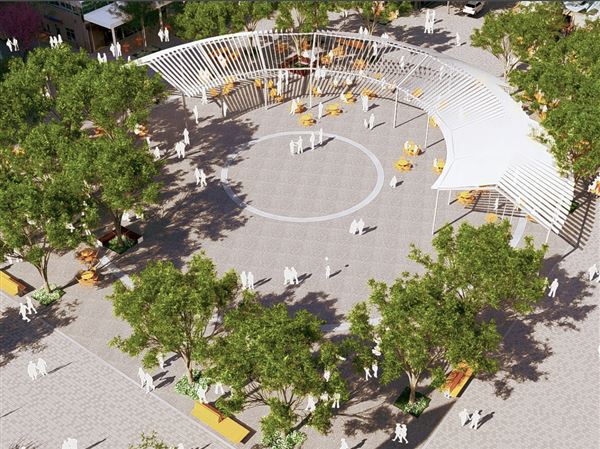A multiyear campaign to save the former St. Nicholas Church by a small contingent led by parishioners has come to an end with the demolition of the historic Troy Hill landmark.
The building, which the nonprofit Preserve Croatian Heritage Foundation had fought to turn into a national museum dedicated to immigrants, is expected to be completely torn down in the next 10 days.
"In the 12 years we've been working with the diocese, we've learned that money is their only concern, not the thoughts of their parishioners," said the foundation's chairman, William Vergot, who was married in the church -- as were his two children. "I'm really concerned that the bishop's heart didn't soften to see how great this could be for Pittsburgh."
Tuesday's announcement of the demolition by the Catholic Diocese of Pittsburgh comes one day after the parish rejected a $300,000 offer for the building by the city's Urban Redevelopment Authority, which intended to sell it to the foundation for $1.
The offer was developed for more than a month and made before Christmas. Those with knowledge of the deal said the diocese gave verbal indication that it would be accepted and wanted to close the deal by last Friday. But on Monday, the city learned the offer was rejected.
"I can't understand why in the world they would want this church down so badly," city council President Darlene Harris said. "I can't understand why they wouldn't let them preserve some of their heritage. I can't understand the heartlessness of this."
Ms. Harris said she was also befuddled by the parish's decision to spend money on demolition and therefore open themselves up to liability if it caused damage to the hillside or surrounding area.
"It may cost them a lot more than what it would have if they had given it away," she said.
Bishop David Zubik said the parish, which provided a recommendation to him against the offer, was firm in its decision to demolish the property after the city dropped an appeal to a Court of Common Pleas ruling that granted the parish the right to take down the church. He said the building was in "precarious condition," posed a danger and had cost the parish $360,000 in maintenance since it closed.
"They really felt there could be a catastrophe if the building was not disassembled," he said.
The building was deemed historic by the city in 2001. The leaders of the parish were not in favor of the designation because it limited the building's use to a buyer. The parish was consolidated with the Millvale congregation in 2004 and the Troy Hill church went unused.
After the Northside Leadership Conference, in support of the preservation group, offered $1 for it, the diocese sought a hardship provision in the city's historic code to allow demolition. Its initial denial by the city Historic Review Commission was overturned last summer by Judge Robert Colville, who said the offer was not a reasonable return.
He cited previous case law in describing the church's historic designation in 2001 as, in effect, "a taking" that left the church hobbled by historic code demands. The city dropped an appeal in October due to potential liability in a takings challenge by the parish, and the demolition plans began.
The diocese and the foundation have been at odds about the building's structural integrity. The church has said its own engineer deemed it hazardous, while the preservation group did a study that found the building to be sound and viable for use as a museum.
Mark Fatla, a lawyer and executive director of the Northside Leadership Conference, said the museum and trail development along the highway would have attracted 50,000 visitors a year, who would spend their money in local restaurants and shops.
"They would rather tear it down than see someone else use it productively," Mr. Fatla said. "Part of me thinks the shepherd wants to punish the sheep who would not listen to him."
Bishop Zubik said beyond the safety concerns, benefits of knocking down the building are that the parish saves money spent on upkeep and can recoup some of that loss by selling the land.
"I wouldn't be much of a shepherd if I was acting in a retaliatory type of way," he said. "I can understand the pain that people feel about the demolition of the building, but there's a parish they belong to in Millvale, where I hope they bring their excitement and energy to help become a vibrant part of that community."
PennDOT says the demolition will take place overnight, when southbound Route 28 is already restricted to one lane, and could result in brief traffic stops.
First Published: January 9, 2013, 10:00 a.m.

















